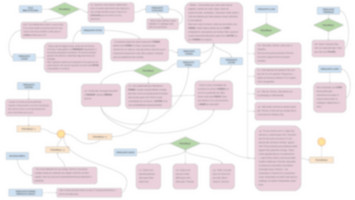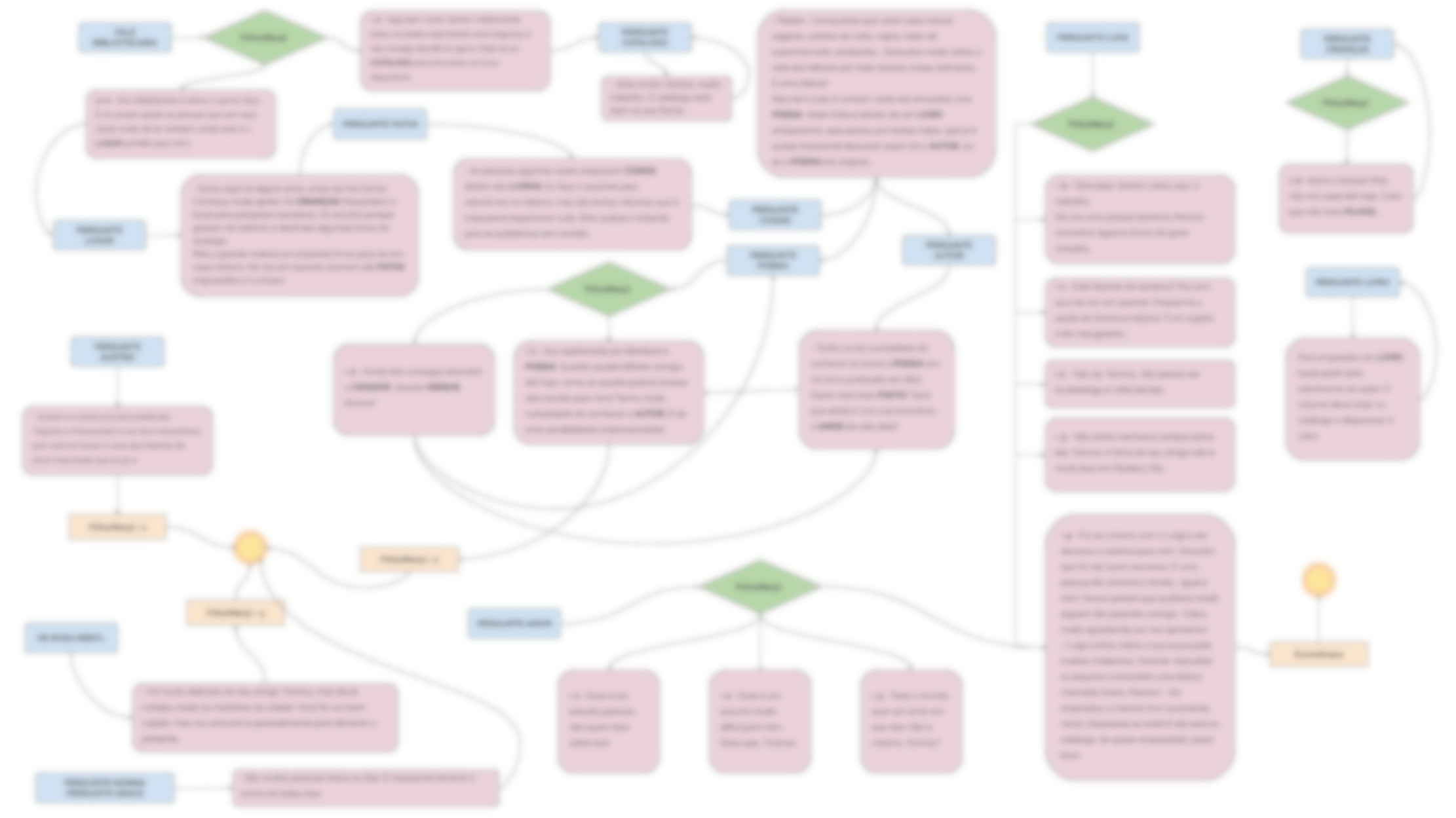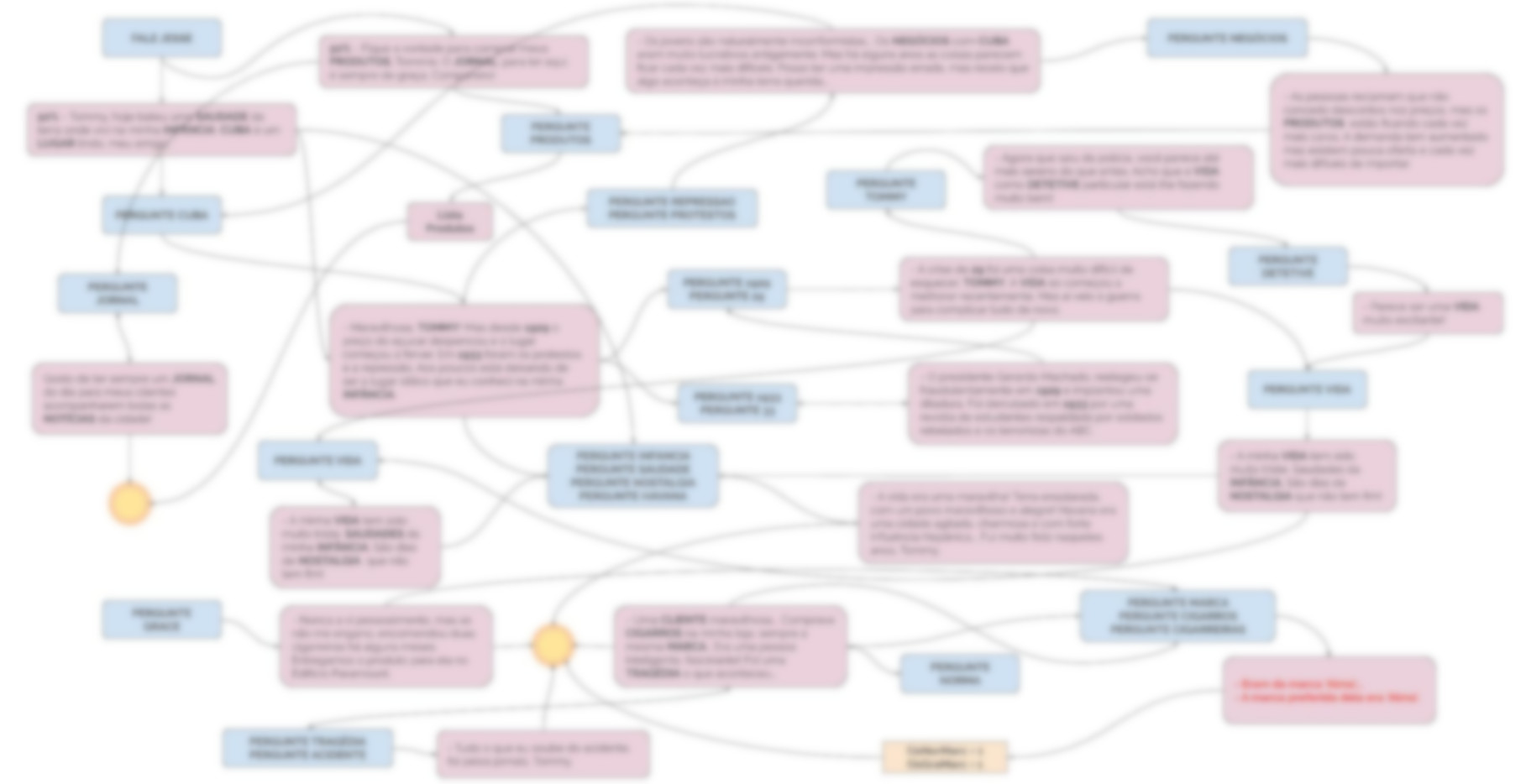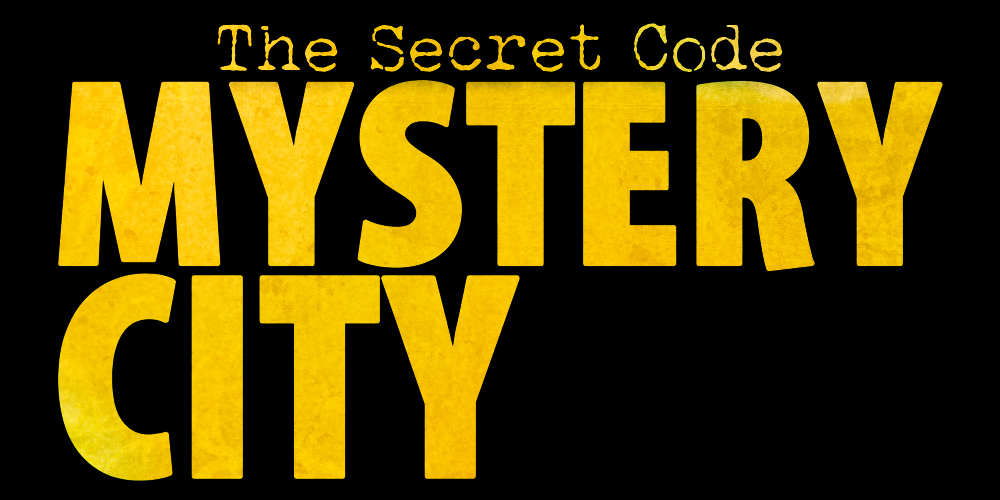Social Interaction Mechanics


The first releases of Mystery City are out for ZX Spectrum Next and MSX2 computers and I hope you enjoy this game as well as I enjoyed creating it. This will be a design discussion post and we'll talk about Social Interaction Mechanics.
When you use the TALK and ASK commands, are doing social interaction with the characters. You should talk to and inspect their lives in order to strength your social bond with them.
The graphics bellow have been blurred to hide spoilers. Each dialogue has been carefully planned, crafted and the Social Interaction is a technique to solve some puzzles in the game. You should do a lot of social engineering to get all the achievements and clues. To strengthen the bond with the habitants you should know more about their lives and talk/ask things they like, about their interests and so on.

There are twelve dialogue-map puzzles to be solved and some of them are really, really complex. You'll take some time interrogating the characters in such a way that they will appear to you as real people, with their own fears, beliefs and desires.
I think I've took both DAAD Adventure Engine and MALUVA (thanks to text compression techniques) to their limit and I'm not kidding... The game has more than 1.100 messages of 300 to 500 bytes each. The uncompressed size of all this content would not fit into the entire RAM memory of the 128/+2/+3 Spectrum models or it's far more than the 256MB MSX Memory Mapper. In comparison, games in the 1980s averaged 80 to 200 user messages, and adding the database plus all the graphical content, this is the kind of thing that only the more powerful 8-bit computers such as the ZX Spectrum Next could handle and make it happen. That's what I call a MEGA ADVENTURE! I hope Tim and Uto can leverage the 2MB of RAM of the ZX Spectrum Next soon :-D
A bigger doesn't aways means a better game. But ambitious, I must note. And the more messages, more struggling is the task of writing, so any help with the revision or translation will be so much welcomed. Since there is no free lunch, things are aways accomplished at a cost: the game will be targeted only to HD and SD storage devices and would not run properly on floppy drives. In the beginning I was planning to support several computers with tape. But according to the way I was implementing my vision, I needed to narrow the compatibility focus to just computers equipped with mass storage devices. ZX Spectrum Next does already have this support OOTB (out-of-the-box) while the MSX2 computer can be easily expanded with an IDE or a SD Mapper device. The C64 was already running Mystery City from four Floppy Disks and so slow and requiring constant disk changes that will not be probably be supported in the future.

When I created the Mystery City, my only memories were about the Brazilian Adventures "Amazônia", "A Lenda da Gávea", "Angra I", "Serra Pelada" and the Spanish Games such as "Don Quijote", "Cobra's Arc", "Post Mortem" and others. So my IF experience were restricted mostly to the portuguese and spanish culture. The Amazônia Adventure by Renato Degiovani (www.tilt.net) is considered to be the first product sold in Brazil by Ciberne Software. It's now being re-released by Bitnamic Software (https://www.bitnamic.com.br/) after almost 40 years and is a game with an atrocious difficulty. If you haven't played yet, you should try it! Since Amazonia was my school, I won't make things easier for you either. ;-D
I've also played Infocom's "The Witness", "Deadline" and other Spectrum great games such as "Hit", "The Big Sleaze", "Play it Again, Sam" and "Homicide Hotel". Despite the admiration I have for them I didn't use any as a reference because Mystery City has been designed several years ago and I didn't know they existed. On the other hand, the english adventurers may think MC strange or perhaps fresh, but a different approach from their current detective games.
After playing these wonderful jewels, I found some funny things because they share several unintentional similarities to my own game. In one of the them, for example, the player starts in his/her office, examining the desk and finding something useful in a drawer. There's an homicide in a hotel, a call from the police to investigate a crime, a beautiful and dangerous woman as well as some other common cliches to the noir/detective games shared with to the movies that helped to define their genre. Despite these similarities, I hope the player will notice the differences as soon as he/she starts playing and MC walks on its own feet.
One common question I've received from the Beta Testers is why I didn't use the Infocom or DAAD syntax style:
> ASK/TALK <CHARACTER> "QUESTION"
> TELL TO <CHARACTER> "SUBJECT"
That's simple: since the player will need mining the dialogues a lot of time, I wanted to streamline the game as much as I could. The same happened to the WEAR and REMOVE commands. If the COAT is already present nearby, why force the player to take and then wear it? There are some things that bother the player a lot and don't play so good nowadays. The DROP command is the same situation: if the player has already WORN the HAT, why not dropping it without complication of removing or issuing extra commands? I've adopted a very similar style to the texts, trying to simplify them, to be synthetic while still informative - no pedantic or wordy descriptions. I've moved the directions and other local Information to the LOOK command as well as condensed all the player info in the INVENTORY. After a few turns, the player will know very well where the places are and the economy and fluidity are things that I value so much, after all this an action adventure game and the player should invest most of his/her time interacting with the game.
It's important to remember that there are several kind of puzzles in MC. The Social Interaction is just one of them and I'll talk more about other design choices in future posts. I hope you enjoy the game and if you liked it, please share with your friends and social channels!
Best regards,
Rogério
Get Mystery City
Mystery City
Detective Adventure
| Status | Released |
| Publisher | |
| Author | Rogerio Biondi |
| Genre | Adventure |
| Tags | 8-Bit, Detective, MSX, msx2, Noir, ZX Spectrum |
| Languages | English, Spanish; Castilian, Portuguese (Brazil) |
More posts
- Mystery City - The Fortunate Fortuneteller28 days ago
- Como Falken resolve os seus crimes?Jun 08, 2024
- MIMEX - A new game for the ZX Spectrum Computers.Dec 31, 2023
- Deluxe Edition Review by TJ FerreiraJun 11, 2021
- Mystery City featured on RetrocomputariaJun 11, 2021
- Diário do ApocalipseMay 16, 2021
- Experimental Versions Available!May 04, 2021
- version 1.0 availableApr 29, 2021
- Juego CartasApr 19, 2021
- Card GameMar 13, 2021

Leave a comment
Log in with itch.io to leave a comment.